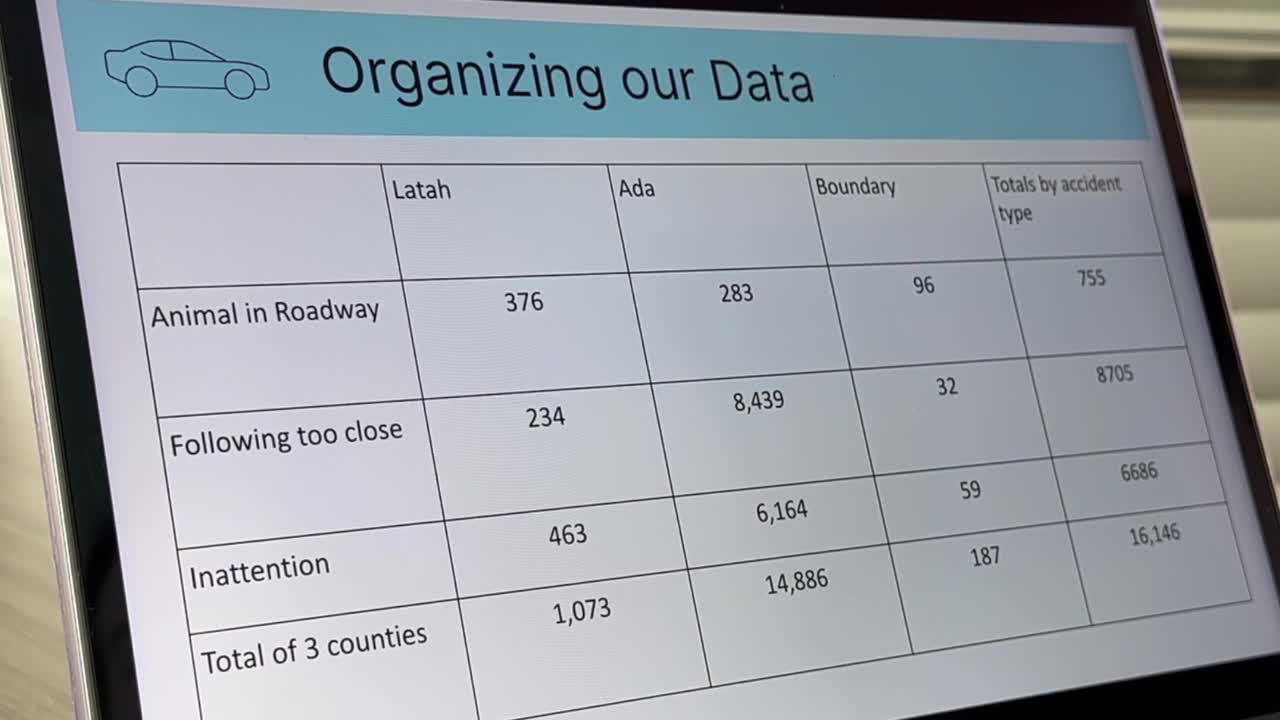BOISE, Idaho — Idaho students are using real-world crash data from the Idaho Transportation Department to learn data literacy as a part of a program in conjunction with Idaho Stem Action Center and Horizon Credit Union.
- ITD's data includes comprehensive research and interactive maps.
- The program is available and applicable for students and teachers state-wide.
- You can visit this site for more information.
(The following is a transcription of the full broadcast story.)
"It starts with a video here that kind of tells the story about how data is used, to really get a picture that this is real data that people are using to make our roadways safer," says Josie Derrick, a math and computer science teacher at One Stone High School in downtown Boise.
Josie Derrick is helping her students learn how to apply data research using information from real-life crash data collected by the Idaho Transportation Department.
"A lot of my role as a teacher is thinking about how I can cover math topics in a way that is real-world and relevant to students’ actual lives," says Derrick.
This is why she was excited to hear about Idaho STEM Action’s “Do the Math, Save a Life” initiative, which was started in conjunction with other partners around the state to encourage students to learn math and data analysis by applying crash evidence in their specific communities.
"We specifically would love students to go down the path of STEM or computer science education. However, at the same time, understanding what is happening in our communities is going to be impactful for any student going down any path," says Katie Bösch-Wilson, STEM Education Coordination Officer for Idaho STEM Action Center.
The curriculum, developed with input from teachers across the state, including Derrick, allows students to focus on their community and look at the roads they travel each day.
"I noticed students would very quickly start looking into areas where they walk," says Derrick.
From informative videos to utilizing interactive maps on ITD’s website, students walk away from lessons with takeaways beyond the classroom.
"I genuinely hope they are taking away safe driving practices. And then the other thing that, of course, I hope they take away are math skills and being more confident in analyzing data," says Derrick.



